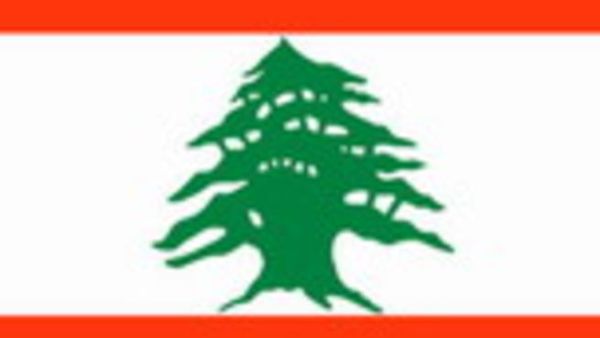From the February 14 assassination of former Lebanese Prime Minister Rafic al-Hariri in Beirut to Feb. 28's dramatic resignation of the Lebanese government following mass protests, the country has been deeply plunged in political turmoil.
Earlier this week, Syrian Foreign Minister Farouk al-Shara reiterated Damascus would withdraw its 14,000 troops from Lebanon according to the Taif Agreement. Speaking to reporters after meeting with Egyptian President Hosni Mubarak, Shara said the Syrian stance on the Lebanon issue was a full commitment to the Taif Agreement.
In light of recent developments in Lebanon, we bring herewith the main principles of the historic Taif Agreement.
The Taif Agreement was negotiated in Taif, Saudi Arabia by members of Lebanon's parliament, presided by then Speaker of the House President Hussein El-Husseini.
The agreement covered political reform, the ending of the civil war in Lebanon, the formation of special relations between Lebanon and Syria, and a framework for the beginning of Syrian withdrawal from Lebanon. It was signed on October 22, 1989.
General Michel Aoun, head of the Lebanon government at the time, rejected the agreement. His main objection regarding it was that Syria had not committed itself either to a rapid or complete withdrawal from Lebanon. To the contrary, Syrian forces were to stay in place for a full two years, ostensibly "assisting the Lebanese government extend its authority."
After that, Syrian forces were to be redeployed only as far as the Beqaa valley. The Agreement gave no timetable for any further Syrian withdrawal, merely stipulating that "such withdrawals would be negotiated at the appropriate time by the governments of Lebanon and Syria."
Furthermore, Aoun charged that the political reforms were unacceptable because they simply shifted power from the office of the President to that of the Prime Minister without solving any fundamental political problems. General Aoun issued a Decree dissolving Parliament before the Parliament could meet, elect a new President, and enact the Agreement into law.
The Parliament, however, ignored him, passed the agreement on November 4, and went ahead to elect Deputy Rene Moawad to the Presidency on November 5.
EXCERPTS FROM THE TAIF AGREEMENT
I. General Principles:
A. Lebanon is a sovereign, free, and independent country and a final homeland for all its citizens.
B. Lebanon is Arab in belonging and identity. It is an active and founding member of the Arab League and is committed to the league's charter. It is an active and founding member of the United Nations Organization and is committed to its charters. Lebanon is a member of the nonaligned movement. The state of Lebanon shall embody these principles in all areas and spheres, without exception.
C. Lebanon is a democratic parliamentary republic founded on respect for public liberties, especially the freedom of expression and belief, on social justice, and on equality in rights and duties among all citizens, without discrimination or preference.
D. The people are the source of authority. They are sovereign and they shall exercise their sovereignty through the constitutional institutions.
E. The economic system is a free system that guarantees individual initiative and private ownership.
F. Culturally, socially, and economically-balanced development is a mainstay of the state's unity and of the system's stability.
G. Efforts (will be made) to achieve comprehensive social justice through fiscal, economic, and social reform.
H. Lebanon's soil is united and it belongs to all the Lebanese. Every Lebanese is entitled to live in and enjoy any part of the country under the supremacy of the law. The people may not be categorized on the basis of any affiliation whatsoever and there shall be no fragmentation, no partition, and no repatriation [of Palestinians in Lebanon].
I. No authority violating the common co-existence charter shall be legitimate.
With regards to Lebanese-Syrian relations, the Taif agreement states the following:
"Lebanon, with its Arab identity, is tied to all the Arab countries by true fraternal relations. Between Lebanon and Syria there is a special relationship that derives its strength from the roots of blood relationships, history, and joint fraternal interests. This is the concept on which the two countries' coordination and cooperation is founded, and which will be embodied by the agreements between the two countries in all areas, in a manner that accomplishes the two fraternal countries' interests within the framework of the sovereignty and independence of each of them.
"Therefore, and because strengthening the bases of security creates the climate needed to develop these bonds, Lebanon should not be allowed to constitute a source of threat to Syria's security, and Syria should not be allowed to constitute a source of threat to Lebanon's security under any circumstances.
"Consequently, Lebanon should not allow itself to become a pathway or a base for any force, state, or organization seeking to undermine its security or Syria's security. Syria, which is eager for Lebanon's security, independence, and unity and for harmony among its citizens, should not permit any act that poses a threat to Lebanon's security, independence, and sovereignty."







